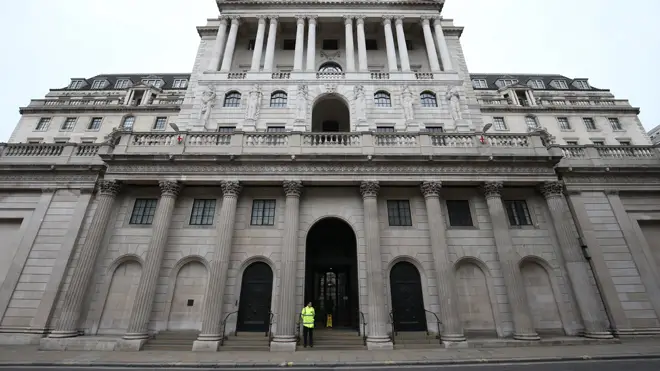
Clive Bull 1am - 4am
18 June 2020, 12:09

The Bank of England has expanded its quantitative easing programme by injecting another £100 billion into the UK economy.
Governor Andrew Bailey made the announcement that brings the total size of the quantitative easing package to £745billion, on top of the extra £200 billion announced in March. Interest rates were left unchanged at 0.1% today.
Economists had predicted that the step would be taken at the Bank’s Monetary Policy Committee (MPC) as a measure designed to stabilise financial markets amid a huge increase in government borrowing.
The economy contracted by a record 20.4% in April due to the impact of the coronavirus lockdown. The ONS has announced that 612,000 workers have come off payrolls of UK firms between March and May, sparking fears of an imminent sharp rise in unemployment.
The Bank warned there were risks of "higher and more persistent" unemployment following the crisis.
The Bank of England issued a statement: "The MPC voted unanimously to maintain Bank Rate at 0.1%. The Committee agreed to increase the target stock of purchased UK government bonds by an additional £100 billion in order to meet the inflation target in the medium term."
Back in March, Chancellor Rishi Sunak used his first Budget to announce a £12 billion of measures in response to the virus and a further £18 billion to boost the economy.
Mr Sunak announced a £30 billion spending package to support the economy in his first Budget.
He acknowledged that “for a period it’s going to be tough” with up to a fifth of people off work, supply chains disrupted and consumer spending decreasing. The Chancellor said there was “likely to be a temporary disruption” to the economy but insisted his plans would bring “stability and security”.